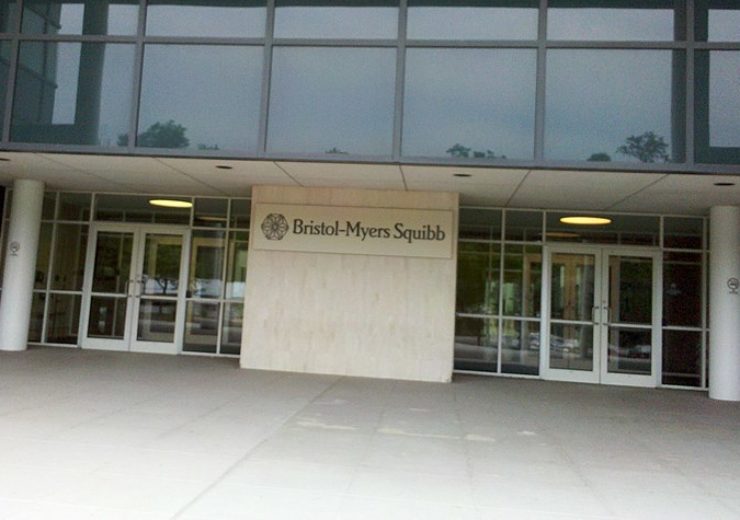Reblozyl is an erythroid maturation agent that regulates late-stage red blood cell (RBC) maturation to reduce or prevent the need for regular RBC transfusions

Entrance to the Bristol-Myers Squibb building at 100 Nassau Park Boulevard. (Credit: Jonathan Schilling/Wikipedia.)
Bristol Myers Squibb along with its partner Acceleron Pharma has received the European regulatory approval for Reblozyl (luspatercept) to treat transfusion-dependent anaemia.
The European Commission indicated Reblozyl for transfusion-dependent anaemia in adults with myelodysplastic syndromes (MDS) with ring sideroblasts, and who are not eligible for erythropoietin-based therapy.
In addition, the drug is also indicated for treating adult patients with transfusion-dependent anaemia associated with beta thalassemia
Bristol Myers Squibb haematology global medical affairs vice president Diane McDowell said: “Across the EU, 25 million blood transfusions occur every year, some of which are needed by patients with anaemia due to hematologic diseases like MDS and beta thalassemia.
“Reblozyl has the potential to address the ineffective erythropoiesis associated with MDS and beta thalassemia, decrease patients’ dependence on red blood cell transfusions and impact the underlying consequences of the high burden of anaemia for these patients.
“Alongside our partners at Acceleron, we recognize the continuing need in disease-related anaemias and are committed to working collaboratively with European health authorities to make Reblozyl available to these patients as quickly as possible.”
Reblozyl reduces the need RBC transfusions
MDS are a group of hematologic malignancies characterised by ineffective production of red blood cells, white blood cells and platelets, and may lead to anaemia, frequent or severe infections, and may progress to Acute Myeloid Leukemia (AML).
Reblozyl is an advanced erythroid maturation agent that promotes late-stage red blood cell maturation in animal models and believed to reduce or prevent the need for RBC transfusions. The drug represents a new class of therapy for eligible patients and is currently approved in the US.
The European regulatory approval is based on data from the Phase 3 MEDALIST and BELIEVES studies, evaluating the potential of Reblozyl to treat anaemia associated with MDS and beta thalassemia, respectively.
Both the clinical trials have met the primary end-point of achieving independence from RBC transfusions and secondary end-point of reduction in transfusion burden, compared to placebo.
